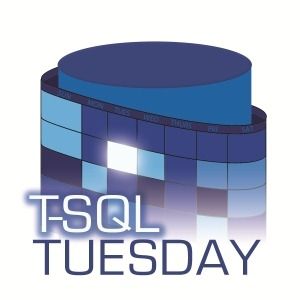This months TSQL Tuesday is hosted by Pinal Dave who asks the question “Has AI helped you with your SQL Server Job?“. It’s a fascinating question because the marketing on numerous products gets me very excited, but then I use them and…well….underwhelming.
First of all, the term AI is a buzzword, and as such it gets picked up by a whole bunch of people who don’t really know what it is, how it works and what it’s current limitations are and chucked into any presentation they are doing. I’ve heard formulas in spreadsheets, threshold based alerting and indexed searching described as AI. Quite honestly if you say your product has AI in it you seem more likely to get your project greenlit of funded. Sometimes even the promise that you will use AI later is enough to get investors and decision makers excited, because for them they hear “AI = Computer doing work = human not doing work = don’t have to pay wages anymore”. Even big companies who should know better fall into this pattern, such as Amazon’s whose just walk out technology, supposedly powered by leading edge vision technology, actually turned out to be powered by hundreds of workers in India watching your shopping session on video.
So far I’ve seen the AI-oversell pattern repeat over and over, and in my own work place I do have to say that the integration of AI has been time-consuming and painful. I was lucky enough to attend PASS summit last year and some of the demo’s of AI in the Azure Portal, and in Vendor products were quite impressive. I couldn’t wait to get back home and try some of them out. But the thing about demo’s are they are easy to get to behave exactly how you want – especially if you control all the inputs and record the demo. I was able to duplicate some, but not all of the demonstrations I saw, and those imperfectly. Some of the features were preview and just not available yet.
How Code is generated and used will be another interesting area to watch. The old meme that “For AI to take over programmers jobs, managers will need to come up with accurate requirements” is very true. Writing code is quite a small part of a programmers job. But I’m at a level when it comes to my code that AI works well at. I will ask for a small specific thing, and I will get back a specific answer that I can plug into a wider application. For the most part that means I don’t have to remember syntax in languages I might use monthly rather than daily. And then add in intellisense (Itself a type of AI) to make sure the code includes keywords that actually exist and I can get things working reasonably quickly.
I was also particularly keen to get my hands on co-pilot for Office 365. It’s been good for drafting emails, but really only for getting from a blank page to ‘something’ and then shaping in the information I want to include. I’ve dropped the use of CoPilot for analyzing my outgoing emails though. My emails tend to answer questions and I try and do this quickly and concisely. CoPilot would prefer I spend more time with cuddly language. Maybe I should but the emails don’t sound like me when I send them.
What I really wanted to be able to do with CoPilot was take a document file that I’d prepared for a client, such as a site review and quickly turn it into a PowerPoint presentation. This can sometimes take up to a day manually depending on the volume and depth of the source document. I had hoped to cut that down to an hour or two, but alas CoPilot has not been very good at picking out key pieces of information, and formatting has also been quite disappointing. With experimentation I’ve found that presenting the source document in a specific format assists greatly with the conversion process and accuracy of the information presented. But I want the PowerPoint to be a summary of the word document – It shouldn’t have to dictate the format of the document in order to do that.
And this leads me to the title of my post today. If AI can get these things right they can shave hours off manual work processes, and obviously that means the same work can be achieved by fewer staff. AI will cost people jobs, but how many people and how many jobs. There’s no doubt that AI will just keep getting smarter and will be capable of achieving more and more tasks, so the real question is how standardized is your job. If you are doing the same thing every day and your decisions are fairly simple, you can expect someone somewhere to start looking at whether AI(or simply well written automation) can do that more cost effectively. If you have a reasonably complex job, and particularly if your job involves complex discussions with other actual human beings, AI is not the threat you should be worried about. The thing that will take your job is another human being who has figured out how to use AI to cut out the time consuming bits of the role and manage the human interactions well.
Microsoft did a very smart thing when they named their AI family of products CoPilot. The not-so-subtle implication is that AI is something that supports you in your job, rather than comes and takes it off you. In the short term at least I see that as being how things will play out. For me AI has been things like CoPilot and chatGPT getting me off a blank page. Asking a question and seeing if the answer tracks. The Search functionality of providing it’s sources is a great addition because I can fact check the source before I read too much into the actual answer.